Can You Get Cancer From Deodorant? How To Choose A Good One
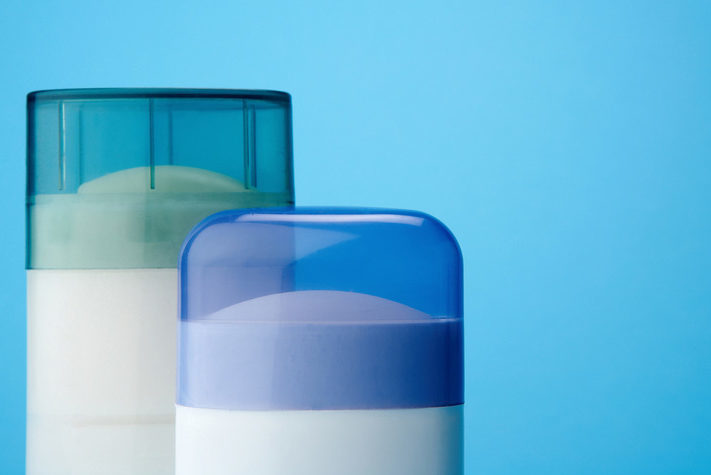
We wear deodorant and/or antiperspirant to keep us from sweating through our clothes and to keep us smelling sweet. Obviously, this is important if we want to keep our jobs, friends and lovers. But is it worth severely disturbing our health?
With most personal care products or cleaning products, it’s easy and seamless to switch to a natural version without compromising effectiveness. However, one exception that my community keeps complaining about are natural deodorants – they fail you and so you keep going back to your old tried and tested favourites. Unfortunately, conventional deodorants and antiperspirants can be one of the most harmful items in our beauty care regime.Deodorant vs Antiperspirant: What’s the Difference?
Deodorants only mask the odor, while antiperspirants are designed to prevent or reduce sweating in the first place.Health Effects of Common Deodorant/Antiperspirant Ingredients
The amount of ingredients in conventional deodorants and antiperspirants are numerous, but here are some of the top ingredients that I’m concerned about.- Aluminum: It affects central nervous system function and is linked to Alzheimer’s disease and breast cancer (more on cancer below).
- Propylene Glycol: This ingredient can cause skin rashes and contact dermatitis. It may also cause damage to the kidneys and liver, as well as neurotoxicity in children.
- Fragrance: Fragrances trigger allergic reactions, respiratory issues like asthma, headaches and hormonal disruptions. You can read an extensive report on the health risks of fragrance, including assessments of popular products, right here. The Canadian version is here.
- Talc: Talc is linked to cancer, especially when inhaled or applied topically on our naughty bits. Scientific studies have shown that routinely applying talcum powder to the genital area may be linked to the development of ovarian cancer.
- Mineral Oil: It coats the skin like a plastic film, clogging pores and preventing the skin from eliminating toxins, which can lead to acne and other skin disorders. It may increase our cancer risk as well.
Can You Get Cancer From Deodorant?
We have about 600 lymph nodes in the body. Two hundred are in the neck and about 20-40 in the armpits. We tend to clog up our neck region with perfume and essentially cork our sweat glands in the armpits. Our lymph system runs parallel in most cases to the bloodlines in our body and is our primary defence against infection. The lymph system is vital in getting the crap out of our body – detoxing, if you will. This serves as a superhighway for toxins and also can be for cancer cells. Cancer cells can break off from the original tumor and spread through the lymph system to distant parts of the body where secondary tumors are formed. One job of the lymph nodes is to clean the lymph by trapping foreign cells, such as bacteria or cancer cells, and identifying foreign proteins for antibody response and then aiding in the elimination of the bad guys. What happens when we block the glands in our armpits from functioning properly? Our breasts are right there, ready to catch the waste. Toxins like to make their home in fat cells and we have fat cells aplenty in the bosom. Could there then be a link between antiperspirants and breast cancer? There are studies that are inconclusive, while others claim there is no risk to using deodorant or antiperspirant. However, I invite you to consider the following:- This review in Breast Cancer Research notes that there has been a rise in cancers, cysts and other abnormalities in the upper outer quadrant of the breast. This is typically where antiperspirants and deodorants are applied, leading the author to suggest there may be a connection between these products, the absorption of endocrine-disrupting chemicals and cancers.
- This study, which measured aluminum levels in breast tissue, found that women using underarm cosmetic products (UCPs) were at a higher risk of breast cancer due to the accumulation of aluminum in the breasts. The authors advised that women, especially under the age of 30, “should be careful with the use of UCPs and avoid its excessive use.”
- This study noted that the absorption of hormone-disrupting chemicals in aluminum-based antiperspirants can lead to hormonal cancers. It suggests the worldwide rise in antiperspirant use parallels an increase in breast and prostate cancer occurrences.
- This examination of cancer cell cultures concluded that aluminum exposure can boost the spread of breast cancer cells.
Free Resource Library
Enjoy more than 40 downloadable guides, recipes, and resources.
The Root Causes of Sweating
Sweating is a natural process. Some of us sweat more and some of us have odor that is stinkier than others. Our skin is one of our largest elimination organs, so if there is something amiss internally our pores will try to excrete it. If you are worried that your body odor is out of control, there may be a few things you can do to troubleshoot before reaching for antiperspirant. Some factors affecting sweat include:- Outside/inside temperature
- Nervousness or anxiety
- Medical conditions such as obesity, liver + kidney disease, thyroid issues and diabetes
- Diet
- Alcohol consumption
- Genetics
- Ineffective elimination or constipation
- Microbiome/bacterial composition
Natural Alternatives to Deodorant + Antiperspirant
As I mentioned earlier in this post, natural deodorants can be a tough sell for many of you. My first piece of advice is to keep trying different brands of natural deodorants. There won’t be one brand or type that will work well for everyone. We all have different chemistry. You can also try experimenting with making your own deodorant using the recipe at the bottom of this post. It’s inexpensive and easy to make, plus you can customize using your favourite essential oils.Essential Oils Perfect For Deodorant
- Sandalwood
- Lavender
- Peppermint
- Cinnamon
- Lemongrass
- Lemon
- Tea tree
- Bergamot
- Cypress
- Showering after exercising or being out in the heat
- Wash your clothes often, especially after you’ve been sweating
- Keep your underarms as dry as possible
- Try infrared saunas, which can help you eliminate toxins through your sweat
- Change up your diet and try detoxifying foods
- Drink plenty of water
- Try skin brushing, which helps to move your lymph
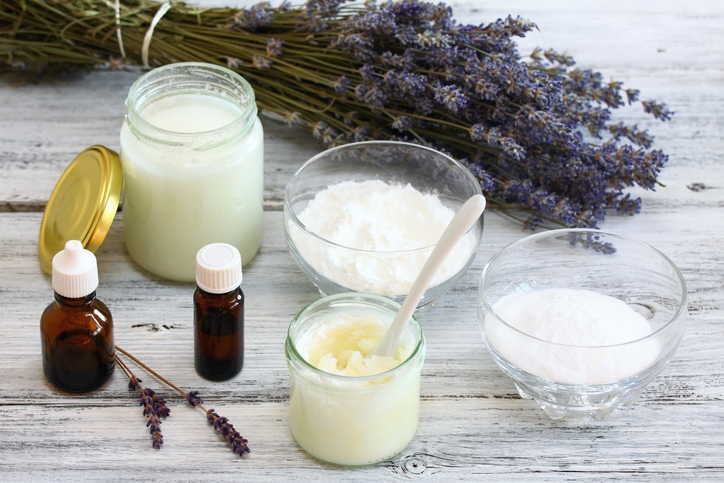
Natural Deodorant
- Total Time: 6 mins
- Yield: 3/4 cup 1x
Description
An easy, customizable deodorant recipe.
Ingredients
Scale
- 1/4 cup + 2 Tbsp coconut oil
- 1/4 cup baking soda
- 1/4 cup arrowroot powder
- 10–15 drops of favourite essential oil
Instructions
- Melt the coconut oil in a small pan over low heat.
- Pour the oil into a bowl and add in the baking soda, arrowroot and essential oils.
- Store the oil in a sealed container and use as needed.
- Prep Time: 5 mins
- Cook Time: 1 min
- Category: Beauty Care
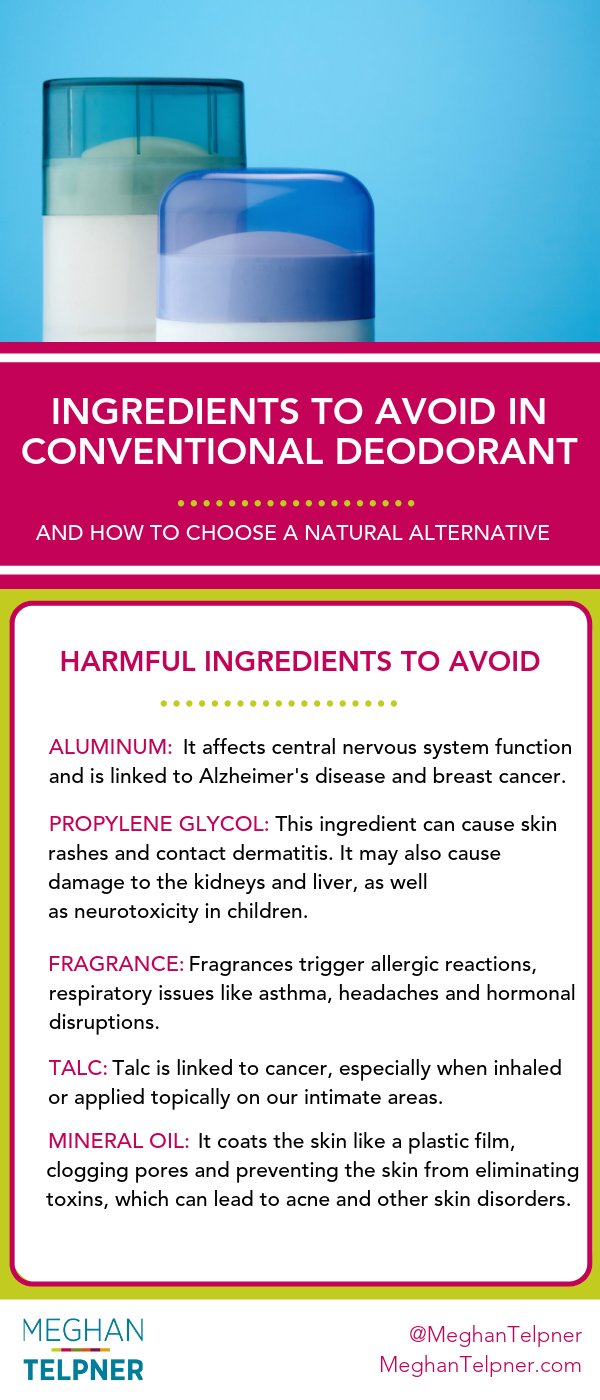
Image: iStock Svehlik
Free Resource Library
Enjoy more than 40 downloadable guides, recipes, and resources.
















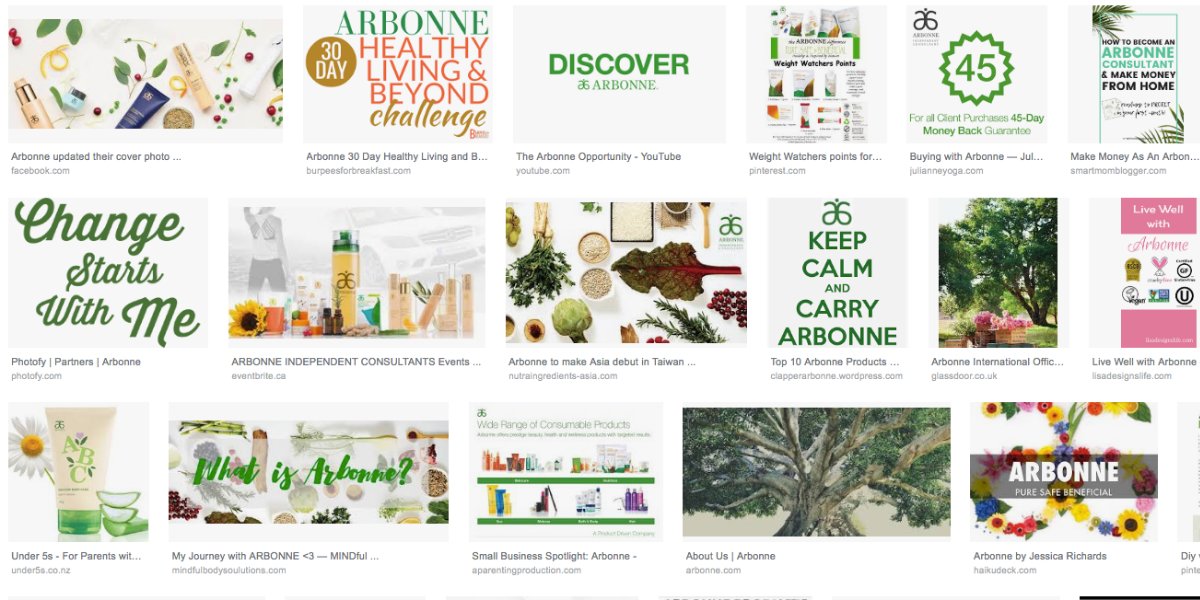
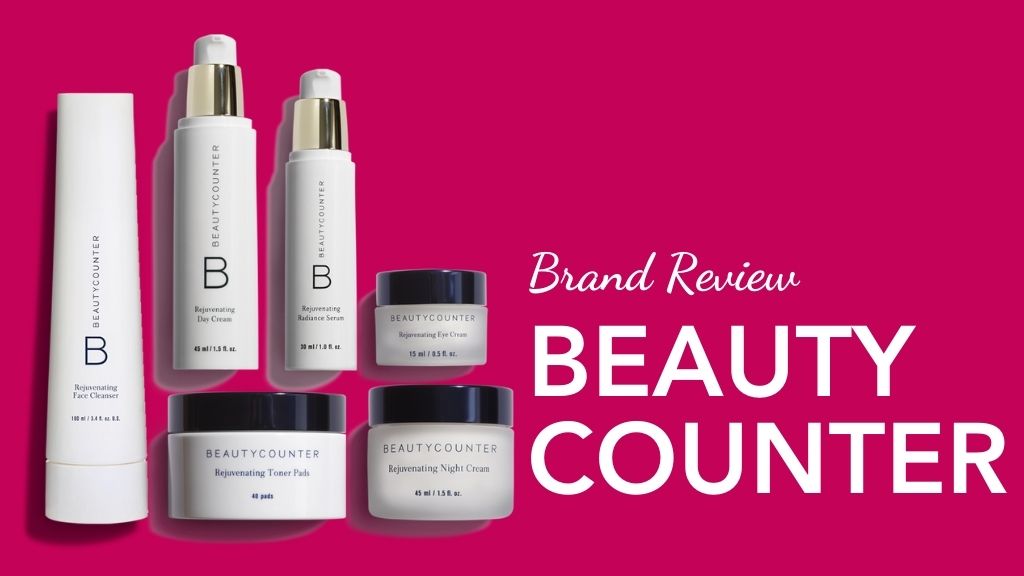
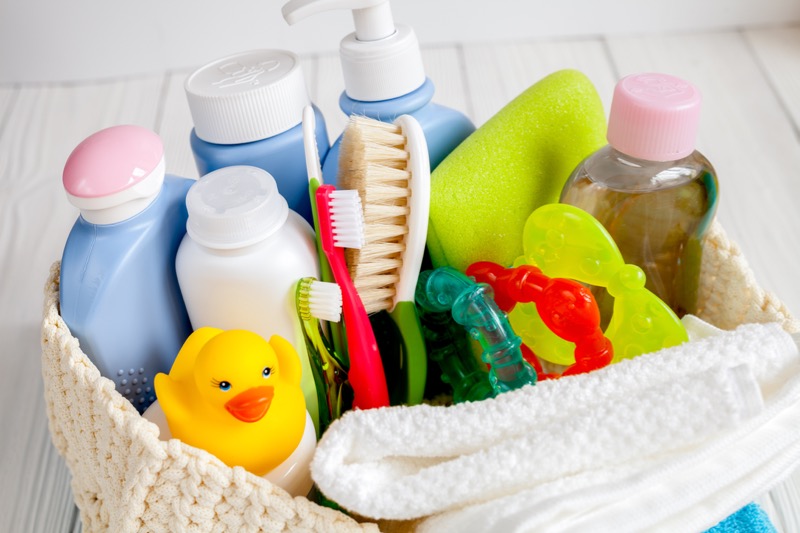


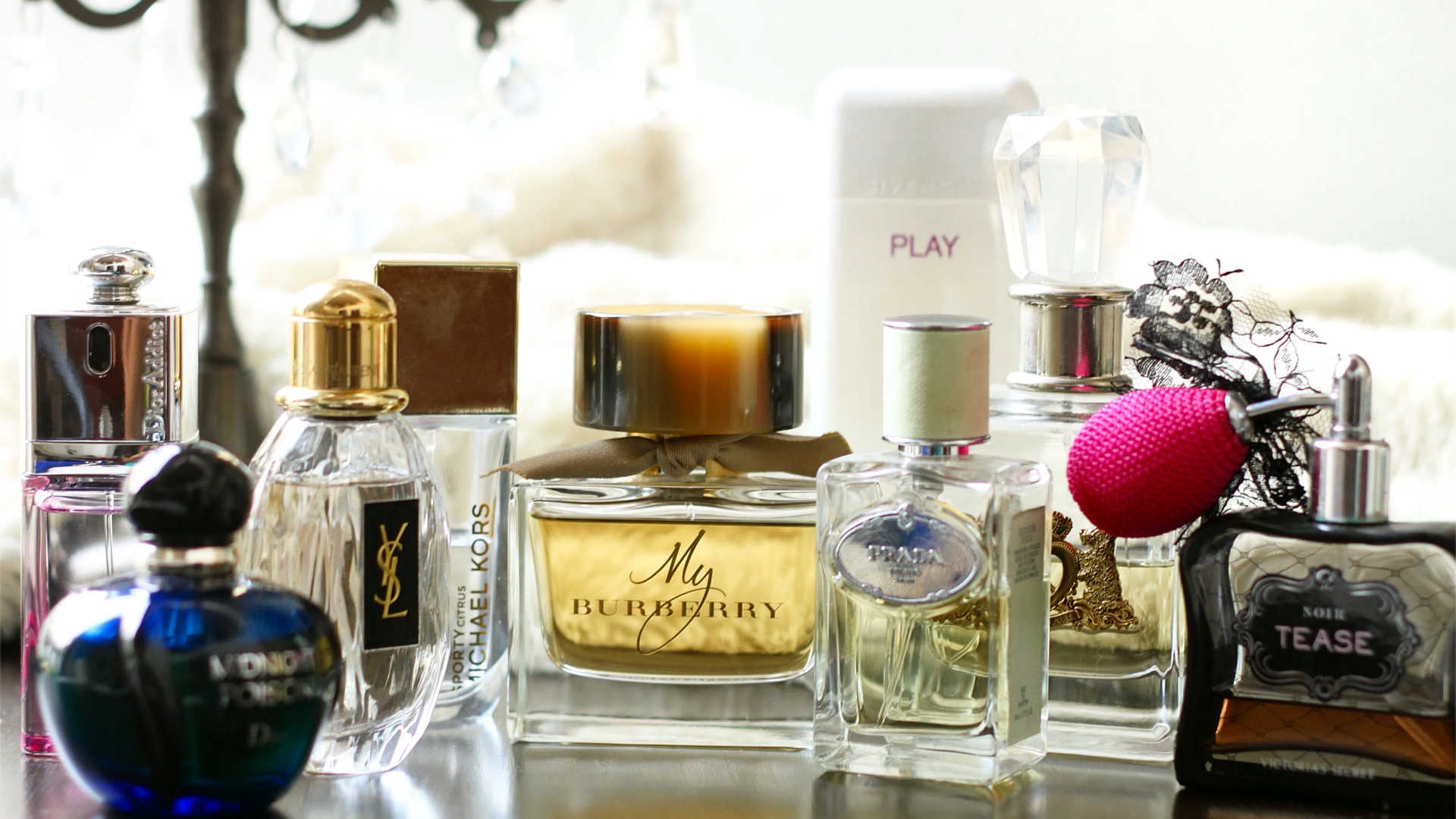
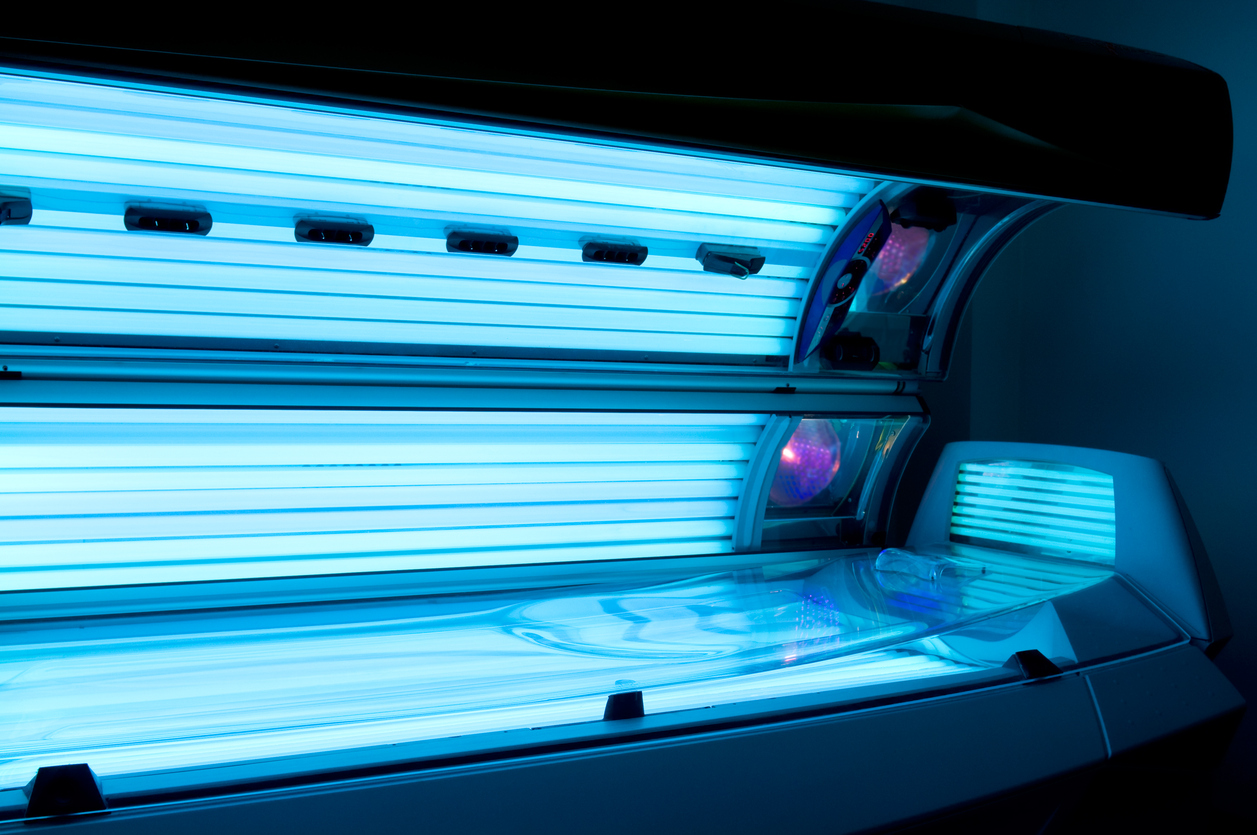
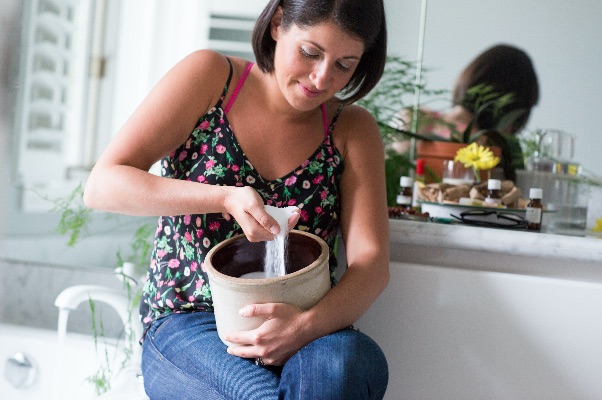

I was finally able to switch to a non aluminum deodorant after my teenage hormones calmed down. I was well into my 20s when that happened! My boyfriend is one of those lucky jerks that doesn’t have to wear deodorant at all.
So how exactly do you make the recipe? Whiz the ingredients together and place in a jar? What’s the best way to apply it? Thanks!
I use just baking soda, but I’m sure this combo is even better! Thanks Meghan! I shall share this post (like many many others) with my clients :)
How do you store/apply this homemade deodorant, Meghan?
I used to have terrible body odour but wanted to avoid the chemicals in the commercial antiperspirants, especially on the under-arms since that tissue is so closely related to breast tissue and so susceptible to cancer growth. For years I tried every natural deodorant (and I worked in an enormous health food store, so I REALLY tried just about all of them!) and complained that they were expensive and none of them worked.
At some point I realized that dairy makes me feel lethargic and blahhhh and so I stopped eating it more than a couple times a month. Low and behold! A natural deodorant stone crystal then worked FINE for me, even for 6-hour bike rides, lunch-hour runs and camping – fine that was, except for the 2-3 days after I eat some cheese or yogurt… it was the DAIRY that caused my BO all those years! So these days when I (rarely) have an odour problem, I consider what I’ve eaten the past few days (dairy and otherwise) before I blame it on my cosmetic routine.
Bonus: a $5 crystal lasts me at least a year.
I don’t use deodorant very much anymore… ever since I started drinking lemon water in the mornings and getting out of the habit of wearing toxic deodorant I just haven’t needed it! But hands down, my current favorite is Poetic Pits from Living Libations… having said that, I need to give this recipe a try. I’ve seen a few recipes around but still haven’t made it myself.
Hi Meghan, love your blog- thanks for all the great articles! I have made this recipe before and loved the results, plus the subtle coconut smell :) However, I started having a reaction after wearing it for a couple days and every time I stopped it went away, but came back within a day of using it again. I have seen from different sites online that suggest using this that some people have a reaction to the baking soda. Any suggestions on alternatives? Or should I just decrease the amount of baking soda in the recipe and try it again? Thanks!!
I make homemade deodorant and have been using it for 2 years now without any smells! My recipe is a 1/4 cup of each of the ingredients listed above: 1/4 coconut oil, 1/4 cup arrowroot starch, and 1/4 baking soda.
I finally made this last month and it works so well! No more smelly pits! Love it!
Meghan,
I love posts like this! Because of my location, finding good natural products can be annoying and I hate spending the ridiculous money on them anyway. I love being able to make them myself at home! It is much more convenient for me and much less expensive! I have seen your recipe for toothpaste, but I’d love to be able to switch out all of my beauty care products for an easy homemade version (that actually works). Do you have recipes for shampoo, conditioner, moisturizer, mouth wash, etc?
Thanks!
One more question: any suggestions for a manly smelling essential oil, say for men’s deordorant?
This recipe is fantastic! It actually works, is cheap and super easy to make. I’ve tried soooo many commercially-produced natural/non-toxic deodorants and none have worked as well as this simple recipe. Thanks Meghan!
I have believed this for so long! I’m so glad this conversation is happening. If you block the sweat glands under your arms, the toxins will collect & poison your boobs. It makes perfect sense! Thanks for posting this. I swore off antiperspirant 20 years ago. I use peppermint castile soap under my arms in the shower, (warning: do not use peppermint soap on your lady parts, it burns) organic lavender spray deodorant and then baby powder. And I try to shower 2 x a day, that helps a lot. Great blog!!
I seem to be reacting to the coconut oil as well, anyone/Meghan have a suggestion to substitute? Thanks!
I have been using this for about 3 weeks now. Never ever ever will I go back to the chemically filled stuff again.
I used pear essential oil, which smells lovely.
This is not an antiperspirant, but honestly, it works pretty well to combat wetness AND stink.
Thank you SO much for this recipe!
I have been aware of this information over the years, however not to the degree that I recently learnt at the Don Tolman seminar I attended over the weekend. I found your website today when researching chemical names on the labels of my skin care or should I say “skin time-bombs” that I have since removed from my bathroom. It’s exciting to read your blogs! Congrats Meghan Telpner Nutritionista on bringing it back to basics and the way it always was ~ fresh is best naturally :) Bel
Soapwalla deodorant is the only one I have found that works enough for me to feel comfortable. It has vegetable powders and clays which I find help me smell fresher and feel a bit dryer than other natural deoderants.
Anyone here use Lavilin? NY Mag ranked it #1 among all the natural deodorants!
I want to try your recipe for natural deodorant but I’m really new at this so please advise. I’m assuming I have to use cotton pads to apply? Should I keep the mixture in the fridge? How long does it last for without going bad? Or how long can I safely use each batch of mixture? Is it safe for kids – pre teen? Thank you
Are the majority of essential oil brands safe to use in this recipe? I got my pack as a gift for Christmas and haven’t done a lot of research on the brand.
Loved this read! I am excited about the new antiperspirant & deodorant from Green Beaver!
After searching for a very long time for a natural deodorant that works and after trying many different brands I’ve found “Fine Deodorant” (that’s the name of the brand). they are amazing and very long-lasting, I make it through the day without a problem and without re-applying. I buy them online and I definitely suggest them !
I have been on a very long, painful and stinky journey to find a deodorant that works. I finally found the one! Schmidt’s Charcoal+Magnesium ONLY this one not the other ones from their line. I can’t tell you what a big deal this was for me to end the search.
I find that baking soda causes irritation, even with unshaved underarms, and the natural deodorants that I’ve tried *without* baking soda feel slimy. I tend to go sans deo, even sometimes while working (as a massage therapist, of all things) — except in warmer weather, when I tend to go back to a commercial product. It feels like a frustrating catch 22!
Hands down best deodorant – have introduced it to a few others and everyone has been as amazed and impressed as I was. Glad to see so many healthier options available.
Cheers,
Holly
Anyone have any luck with homemade deodorants that do NOT include baking soda? Sadly, baking soda burns my underarms.
I have tired all manner of safe deodorants and found most to be effective for me for just 12 hours with 1 exception: Dr Mist which contains ionized water, calcium, sodium chloride & magnesium…available at the grocery store.
I am loving the Kopari brand available at Sephora in Canada. It goes on smooth and clump free and keeps me smelling sweet all day!
a lot of people with sensitive skin react to the baking soda commonly used in natural deodorant formulations so I would try omitting that. You can also search for baking soda-free deodorant recipes on the web ;)
I’m loving “no pong”, it was originally produced in Australia, they manufacture here in Canada and is not expensive…..win-win!
My favourite, which really works is “I LUV IT”. Made in BC
I have been using Pure Haven. Easier than DIY. From the label: Arrowroot powder, organic coconut oil, beeswax, capric triglyceride, baking soda, organic castor seed oil, organic peppermint oil and organic tea tree oil.
They just came out with a new one without baking soda for people that are irritated by it. Maybe worth a look.
I’ve tried so many types over the years having dealt with hyperhidrosis and have hands down decided that Routine deodorants are THE best! Calgary based female led company with many fragrance options and baking soda or baking soda free choices for a user friendly experience regardless of your preference!
I love Sola Skincare’s natural deodorant. Their coconut deodorant works amazingly well, but as mentioned above in another comment, it does have baking soda, and my underarms reacted a little. However, they just developed a baking soda-free deodorant for sensitive skin and I am currently using it. It works great. Definitely recommend it.
‘No Pong’ works so well! There is a bicarbonate free option plus one of the founders is Canadian:)
I have been making my own deodorant using a similar recipe, but cornstarch instead of arrowroot. I’ve been very happy with it. Is there any reason I shouldn’t use cornstarch?
Amazing blog! Just loved it. Thanks for the precious information.
Love the information. I gave up deoderant about five years ago, when I became vegan. My body does not produce the oder it did when I ate meat. I actually rarely use deodorant and when I do , it is a natural brand. Blessings, keep up the good work.
After years of looking for a natural version that worked I found the Routine brand out of Calgary. It works great and easily available in local health food stores
Being a DES Daughter I avoid xenos as much as I can. Essential oils such as lavender, peppermint, spearmint, even cinnamon are all found to be endocrine disruptors. See womhoo.com or clearwoman.com for an extensive list offered by Dr. Eckhart.
Having tried many natural deodorants and having made my own, I found that the brand Routine works best for me. I have recently found a new natural deodorant called Super Deodorant. They are from New Brunswick. It works great too.
I appreciate all of the suggestions people have brought here.
Regarding essential oil and endocrine disruption, I wonder if the source could be pesticide /herbicide related (oils in the study, the plants from which they were distilled, were contaminated).